
Bridge Institutions in Higher Education
The United States and Latin America are both struggling to find ways to improve participation in quality education in the face of a labor-market skills gap. But all too often, policymakers, businesses and educators have looked to elite universities as a way of meeting those gaps. While important for high-end jobs, labor market and social … Read more
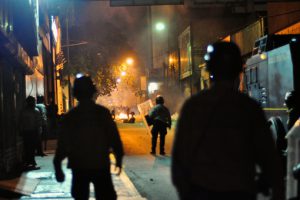
From the Think Tanks
Human Rights Watch, Brookings Institution, Corporación de Estudios para Latinoamerica The Venezuelan government’s response to the protests that began on February 12, 2014, led to accusations of human rights abuses. In its report, “Punished for Protesting: Rights Violations in Venezuela’s Streets, Detention Centers, and Justice System,” Human Rights Watch analyzes 45 allegations of abuses perpetrated … Read more
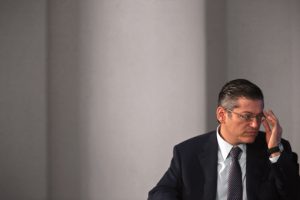
Higher Ed: Private Investors Get Into the Game
The combination of sustained economic growth in Latin America, a region-wide expansion of the middle class, and a newly competitive business environment has boosted demand for quality education, and stoked desires for alternatives. The alternatives are coming from a slew of new and lower-cost online courses. This innovation has produced a wave of private investment … Read more
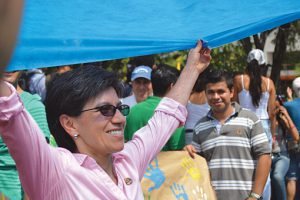
Political Innovator: Claudia López
Claudia López fled Colombia in October of 2013 after receiving death threats for her investigative reporting on the so-called parapolítica network that linked her country’s politicians with paramilitary groups. “Yesterday, I left the country as a preventative measure,” López wrote to her Twitter followers. “I will return when the police and the inspector general do … Read more
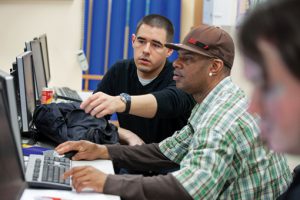
MOOCs in Development: Fad or Future?
Those following tech and continuing education news have been surprised by the rising popularity of Massive Open Online Courses (MOOCs).1 The basic promise for professionals in Latin America and the Caribbean is quite alluring: free online access to a world-class knowledge base. But questions remain. Will this new learning methodology last, or fade quickly once … Read more
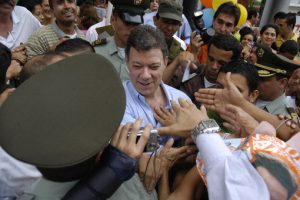
Peace: Elections and Peace in Colombia
Colombia’s 2014 presidential elections marked a watershed in the country’s politics. This was not because incumbent President Juan Manuel Santos won by nearly six percentage points, after having narrowly lost the first round to Óscar Iván Zuluaga, a hardliner backed by Santos’s political nemesis, former president Álvaro Uribe. Rather, the campaign offered—as never before—starkly opposing … Read more
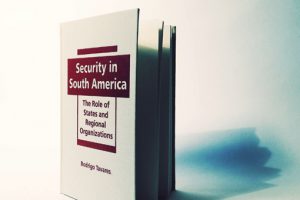
Security in South America: The Role of States and Regional Organizations by Rodrigo Tavares
Nowhere in the world is the web of treaties, agreements and agencies concerned with regional security needs as thick as in Latin America. The region has seen one of the most dramatic institutional transformations of the late twentieth and early twenty-first century. Among the many reasons for this transformation is the widespread rejection of U.S. … Read more
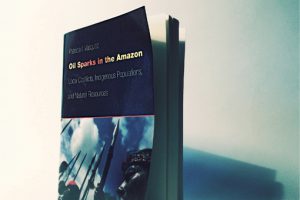
Oil Sparks in the Amazon: Local Conflicts, Indigenous Populations, and Natural Resources by Patricia I. Vásquez
Since the early 1990s, the rising price of crude oil and other key natural resources—and the resulting drive by governments and private companies to extract those resources—has led to sharp conflicts in Latin America. At the core of these disputes is the clash between national economic interest and the rights of Indigenous people inhabiting the … Read more
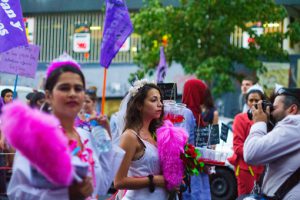
Behind the Numbers: Women’s Rights
The gender-based data on social inclusion clearly indicate the opportunities and obstacles facing women in Latin America—as well as numerous contradictions and complexities. An examination of new trends, laws and policies brings to mind the Spanish expression, “Del dicho al hecho, hay mucho trecho.” In other words, even in many areas where there appears to … Read more

Policy Updates
A snapshot of policy trends and successes in the region.
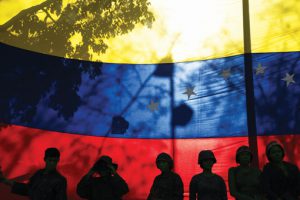
Venezuela: How Long Can This Go On?
On April 10, Venezuelans stayed up past midnight to watch an event on TV that just a few weeks prior would have seemed incredible, almost miraculous: after three months of intense protests, headed by students in alliance with the most combative sectors of the opposition calling for President Nicolás Maduro’s departure, the government and the … Read more

Latin America at the Winter Olympics
Latin American and Caribbean countries may not be as well-known for their winter sports as Canada, Russia or the United States, but the region does have a storied tradition at the Winter Olympic Games. Argentina, the first Latin American country to participate, sent a five-man bobsled team to the second-ever Winter Games in 1928. Chile … Read more
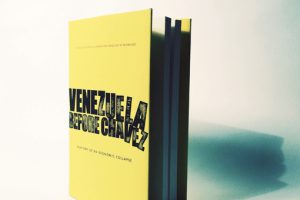
Venezuela Before Chávez: Anatomy of an Economic Collapse by Ricardo Hausmann and Francisco R. Rodríguez
During the 1970s, Venezuela was the richest country in Latin America. With the region’s highest growth rates and the lowest levels of inequality, it was also one of the most stable democracies in the Americas. But starting in the early 1980s, things fell apart. The nation endured three coup attempts and one presidential impeachment. Per … Read more

Fresh Look Reviews
Fresh, unique perspectives on recent books from across the hemisphere originally published in English, Spanish and Portuguese.
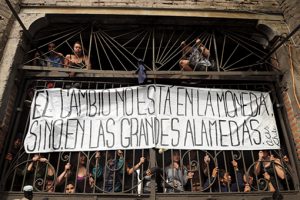
Protest U.
Millions of students have taken to the streets across Latin America in recent years in protests that reflect an unprecedentedly broad mobilization of popular opinion. Following massive demonstrations led by secondary school students in 2006 in Chile, university students launched a series of protests in May 2011. Powered by a coalition of public and private … Read more


